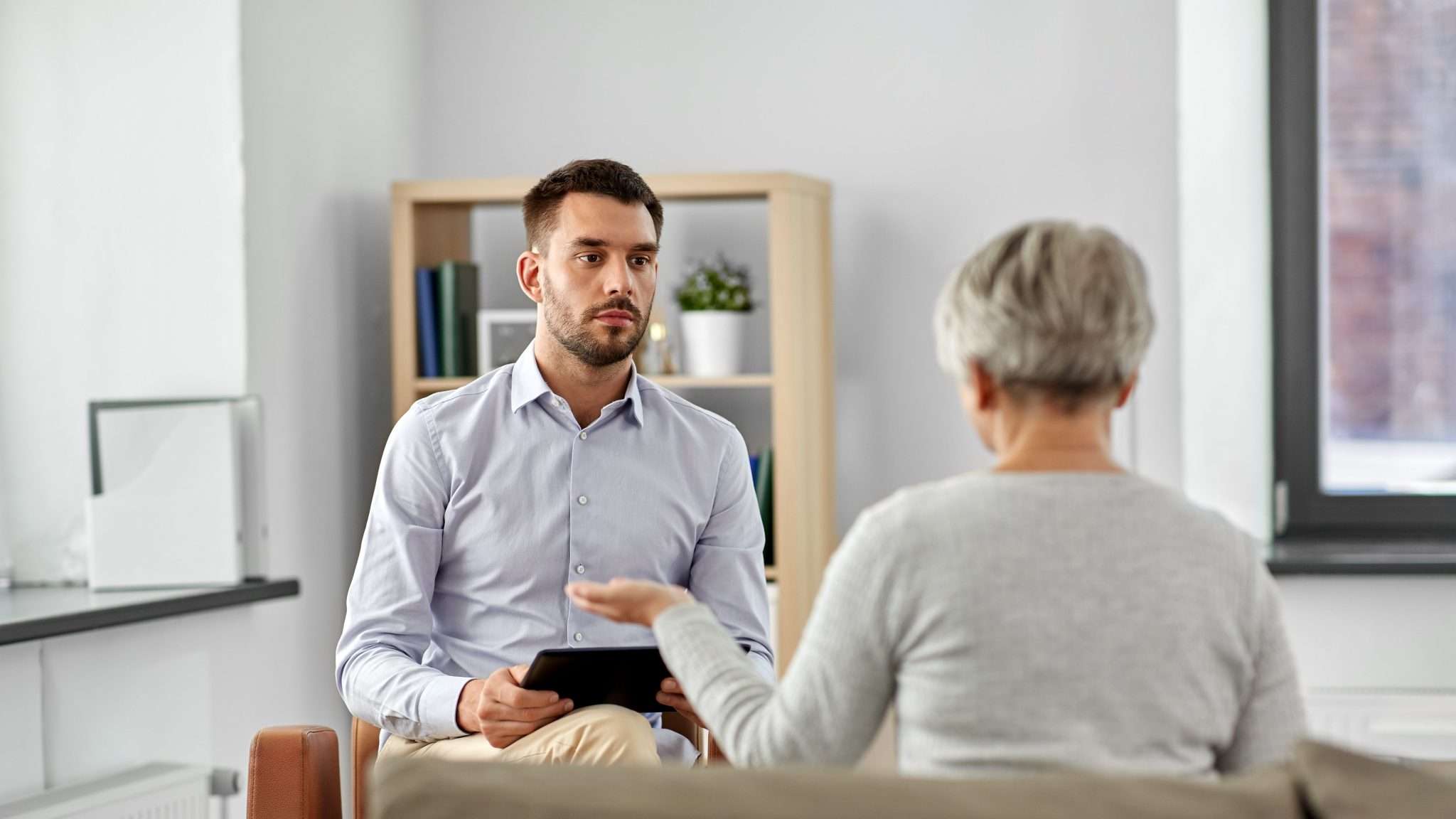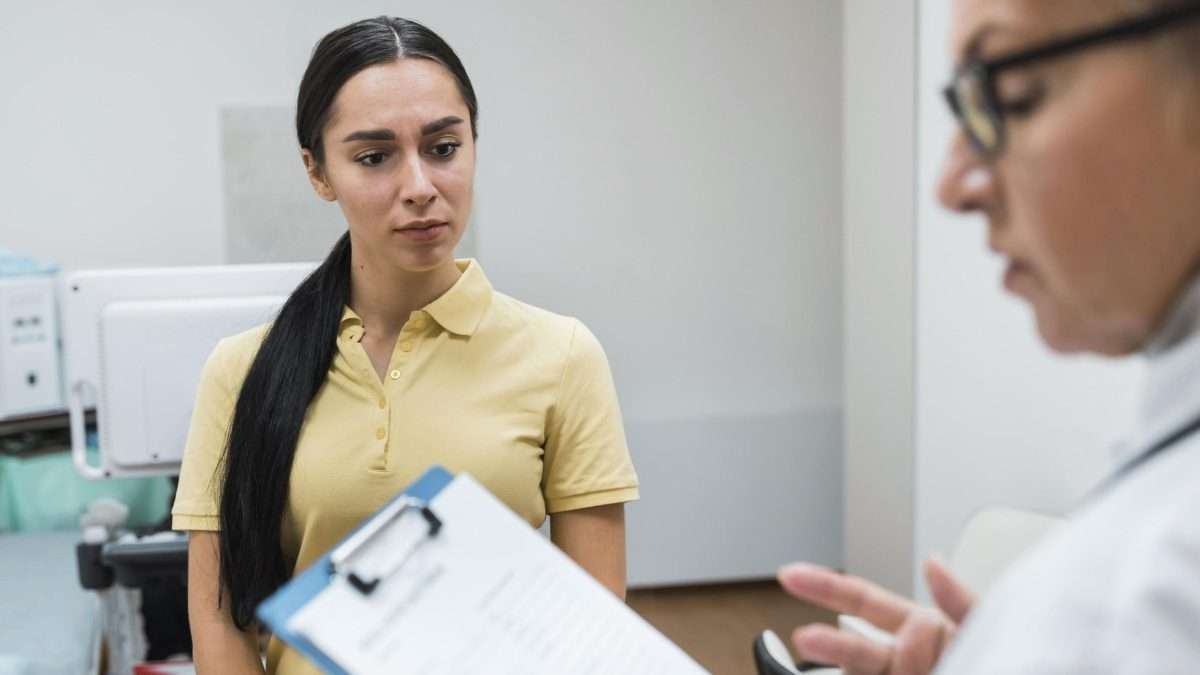Table of Contents

Download Our Brochure
Can You Get Over-The-Counter Anxiety Medication in the UK?
No, you can’t. If you want anxiety medications, they must be prescribed by a doctor. There are a couple of reasons for this. Firstly, your doctor needs to see if you actually need anti-anxiety medications. Maybe there’s a reason for your anxiety disorder (such as previous trauma, phobia or historic abuse) and by dealing with or treating the root cause, your anxiety is cured.
Perhaps the doctor will suggest you start exercising regularly, have a digital detox so you sleep better, or take some time off work – all these simple life changes can help treat anxiety disorders. Medication isn’t always the answer.
Secondly, anxiety medications can be easy to abuse. If you’re feeling stressed, reaching for a pill ‘to make you feel better’ might be the first thing you do, even if your next dose isn’t due. Taking too much can overwhelm your system and lead to addiction. For this reason, anxiety medications should only be taken on prescription.

What Are the Side Effects of Anxiety Medication?
All medicines can have side effects and anti-anxiety meds are no different. They work by targeting your central nervous system and slowing down the activity in your brain, making you less agitated and calming you down.
Anti-anxiety medications can also produce the following side effects:
- Drowsiness
- Dizziness
- Confusion
- Insomnia
- Lack of co-ordination
- Depression
- Loss of appetite
- Weight loss
- Nausea
- Diarrhoea
- Constipation
- Slow breathing
As anxiety medication can affect you physically and mentally, it is essential that you only take it under the supervision and guidance of a doctor who can manage any difficulties you may have.
Common Anxiety Medications
- Buspirone (BuSpar): an anxiolytic (anti-anxiety) medication in pill or liquid form which is usually prescribed for short-term use. It is not clear exactly how it works but it is believed to affect a brain chemical that causes the symptoms of anxiety.
- Klonopin (Clonazepam): a benzodiazepine, which is a sedative that can be highly addictive. For this reason it is usually only prescribed for up to four weeks and if you take it longer, you may need to be weaned off it.
- Valium (Diazepam): another benzodiazepine prescribed for anxiety disorder. Highly addictive, it works quickly, reducing feelings of anxiety in just a few hours.
- Ativan (Lorazepam): this is also benzo and is recommended for short-term use due to its addictive properties.

Treating Addiction Since 1988
Benzodiazepine Abuse Symptoms
Benzodiazepines are highly addictive, and you can become dependent on them in just days. Developing an addiction can take you by surprise, especially if you’ve had them prescribed by a doctor and are taking them in good faith.
Symptoms of benzodiazepine addiction include:
- Depression
- Drowsiness
- Poor judgement
- Mood changes
- Loss of inhibitions (so you indulge in risky behaviours)
‘Doctor shopping’ where you move from one GP to another in order to get more benzos, and asking friends and family to give you their pills, are also signs that you are abusing these drugs.
If you drink alcohol while taking any benzodiazepine you increase your risk of suffering severe side effects. This is because both substances work as relaxants and if taken together they can slow down your vital functions to dangerous levels.
If you stop taking benzodiazepines suddenly, you may experience unpleasant withdrawal symptoms such as sky-high anxiety, paranoia, racing heartbeat, seizures and psychosis.
This might make you reach for the pills again, and as you relapse you become trapped in the spiral of addiction.
Castle Craig are specialists at tackling benzodiazepine addiction. We also know how to treat addiction while also handling the anxiety disorders the benzos were meant to have helped. Juggling a substance use disorder alongside a mental health issue is called dual diagnosis, and we at Castle Craig are experienced in dealing with this. So don’t think you’re beyond help – you’re not.

How Does Anxiety Medication Make You Feel?
Less anxious and calmer. It might also alleviate physical symptoms of anxiety, such as stomach pain or nausea. It can also aid the sleep that your anxiety disorder has interrupted. If you sleep well, you’ll feel much better and brighter the next day.
If you experience unpleasant side effects from your prescription, you may feel you’re back to square one. Studies show that the symptoms from the anti-anxiety meds can ‘have as much negative impact’ on your working life as the anxiety you suffered before taking them.
If you feel you’re not ‘getting on’ with your medication, speak to your GP who should be able to offer an alternative.
How Does Anxiety Medication Work?
Benzodiazepines, which are the type of drugs used in most anxiety medications, work by slowing down your busy brain, making you feel calmer and more relaxed. They do this by stimulating the brain’s chemical gamma-aminobutyric acid (GABA) which blocks activity between nerve cells in the brain.
Other medications prescribed for anti-anxiety include SSRIs (selective serotonin reuptake inhibitors), which work by raising the level of the brain’s feel-good chemical serotonin.
SRNIs (serotonin and norepinephrine reuptake inhibitors) raise serotonin and norepinephrine, which regulates your reaction to stress,
Buspirone is not an SSRI or an SRNI although it works in a similar way. It targets another brain chemical – the 5-HTIA serotonin receptor – thus activating serotonin, which helps stabilise your mood and reduce anxiety.
What Are the Dangers Associated With Anti-anxiety Medication?
The biggest danger associated with anti-anxiety medication is becoming addicted. This is why it is essential you take this medicine under a doctor’s guidance, and only on prescription. Many anxiety medications are so addictive, they are usually only prescribed for up to four weeks of use.
Don’t underestimate the impact these prescription drugs are having on you. Long-term benzodiazepine use can result in cognitive impairment, and hip fracture and it also raises the risk of having a car accident.
Another danger with taking anti-anxiety medications is the side effects you may experience while taking them or the withdrawal symptoms you may have when you try and stop.
They are your body and brain’s response to the medication leaving your system. The symptoms make you feel terrible physically and mentally, and the easiest way to get rid of them can be to reach for your medication again. This is the cycle of addiction.
At Castle Craig, we are experienced in dealing with prescription drug addiction. We also understand that you may feel embarrassed to find yourself with a dependency, especially as you have been taking anxiety medication in good faith. Don’t worry, we don’t judge, we just help.

Are SSRIs and SNRIs Addictive?
No, they aren’t – although you can become tolerant of them, which means that after time you need more to achieve the same effect. As they are not addictive, they are usually prescribed for longer than benzodiazepines. SSRIs can take up to four weeks to work, but while they are sometimes prescribed for anxiety disorders they are usually used for depression. They don’t work for everyone, which is why they may not have been suggested as an anti-anxiety remedy for you.
SNRIs work in a similar way but again are generally used as an antidepressant. Both types of drugs can increase feelings of anxiety initially, which means you may need to be started on them gradually, or else you’ll feel as though you’re making matters worse, not better.
Drug Withdrawal and Overdose
Anti-anxiety drugs that slow down the central nervous system can produce withdrawal symptoms when you stop taking them or reduce your dosage. These can be unpleasant and severe and affect you physically and psychologically.
Physical symptoms from anxiety medication withdrawal include:
- Dizziness
- Lack of co-ordination
- Vertigo
- Stomach ache
- Headache
- Muscle twitching
- Nausea and vomiting
- Insomnia
- Rapid heart rate
- Sweating
- Seizures
- Psychological symptoms from anxiety medication withdrawal include:
- Paranoia
- Hallucinations
- Anxiety
- Panic attacks
- Delusions
- Agitation
- Psychosis
It is easier than you probably think to overdose on anxiety medications, and overdoses from benzodiazepines have quadrupled over the last 20 years. This is because more are being prescribed, people are becoming addicted or they’re not taking them responsibly (i.e. they’re buying them illegally or drinking alcohol alongside their prescription). Overdose is often fatal.
If you’re taking more medication for your anxiety than has been prescribed or you’ve tried and failed to stop taking it, you need help before it gets too late. Perhaps it’s not you you’re worried about, but someone else. Either way, contact Castle Craig to understand how our medically supervised detox can wean you off anxiety medication for good while safely managing your withdrawal symptoms.

How to Beat Anxiety Without Medication?
When it comes to dealing with anxiety disorders, medication isn’t always the answer. Firstly, it helps to understand the root cause of your stress. Is it generalised anxiety disorder or is it related to a specific issue – such as a heavy workload, an unhappy relationship, financial worries, insomnia or past trauma?
Many people reach for the pills before considering evidence-based treatments such as therapy, relaxation techniques, exercise or education on sleep hygiene (which means adopting healthy sleep-inducing habits at bedtime). Yet many of these natural remedies can help with an anxiety disorder. If you get eight hours of shut-eye a night, you might find much of your stress evaporates the following day.
Therapy has been shown to treat anxiety successfully, and cognitive behavioural therapy (CBT), which alters the way you think and behave, is regarded as one of the best. Therapy can be delivered individually or in a group, or it can be targeted to a specific issue.
At Castle Craig, we offer CBT and other therapies such as grief therapy and trauma therapy, which we can deliver while helping you detox safely from the anxiety medication you may now rely on. With therapy, we can arm you with the tools to deal with future stresses and anxieties safely and medicine-free.
When to Seek Treatment For an Anxiety Disorder?
It is normal to feel anxious at times. It would be abnormal not to worry before an exam, before a bout of public speaking or while you’re waiting for important medical results. It is also perfectly understandable that you would be upset following the death of a loved one or the end of a relationship.
However, if you worry relentlessly about everything, including many things you can’t control (such as world events or the weather), and if it is affecting your ability to sleep, concentrate and form relationships, then you may have generalised anxiety disorder. It can also manifest itself physically with symptoms including headache, stomach ache, irritable bowel syndrome and teeth grinding.
Anxiety can also have you reaching for drinks and drugs as you attempt to self-medicate and ‘calm your nerves’. Before you know it you have anxiety and an addiction to deal with.
Don’t let it get this far. Contact your GP if you feel your anxiety is impacting your life and health. If you’ve been prescribed anxiety medication to which you’re now dependent, you may need bespoke addiction and anxiety treatment to help you come off your meds safely, while also treating the cause of your anxiety.
CTA: Anxiety medication can be addictive so if you are worried about your reliance on these drugs, or you’re concerned about a loved one, call Castle Craig on 01721 546 263 for expert, non-judgmental advice.
Frequently Asked Questions
How Do I Know if I Need Anxiety Medication?
Speak to your GP and explain your symptoms. It might be that you don’t need medication, but other natural remedies to alleviate your anxiety.
Is It Ok to Take Anxiety Medication Every Day?
It depends on your prescription. Check the leaflet and follow what it says. If you do take more than recommended, contact your GP immediately.

